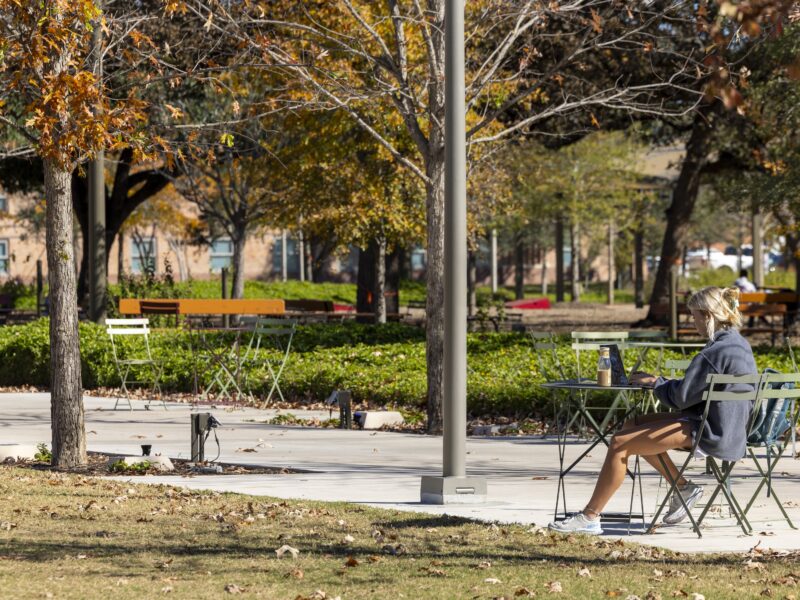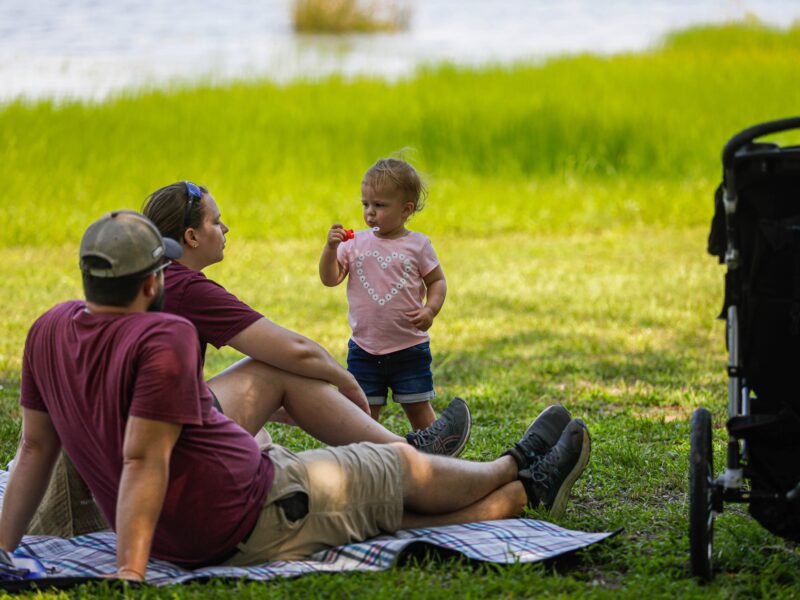How Hurricanes Form/Storm Severity:
John Nielsen-Gammon, Regents Professor of atmospheric sciences, (979) 862-2248 or n-g@tamu.edu. He serves as Texas State Climatologist and is an expert in severe storms, how hurricanes form, the history of Texas hurricanes, rapid formation of hurricanes in the Gulf of Mexico and the history of severe storms and hurricanes in the past 100 years.
Richard Orville, professor of atmospheric sciences, (979) 845-9244 or rorville@tamu.edu. Orville is an expert in severe storms, the formation of storms and lightning, and the damage caused by severe storms and hurricanes.
Robert Korty, associate professor of atmospheric sciences, (979) 847-9090 or korty@tamu.edu. He is an expert on how hurricanes affect oceans and how climate affects hurricanes.
Steven Quiring, associate professor of geography. Quiring is an expert on hurricane damage to electrical power systems and power outages. His work is funded by the Department of Energy and he runs models to predict the number and location of power outages up to 4 days prior to hurricane landfall.
Structural Damage, Water Damage/Off-shore Structures:
Robert Randall, director of the Haynes Coastal Engineering Laboratory at Texas A&M, (979) 458-0188 or (979) 845-4568 or r-randall@tamu.edu. He can discuss off-shore and experimental measurements, construction near water sites and dredging and open-water disposal.
Jean Louis Briaud, professor of civil engineering, (979) 845-3795 or briaud@tamu.edu. He is an expert in erosion and “scour,” the remains of buildings damaged by seawater. He also is proficient in how water sweeps away materials or bridges and soil compaction in levees.
Robin Autenrieth, Interim head, Zachry Department of Civil Engineering, (979) 845-3593 or rautenrieth@civil.tamu.edu. She is an expert in water cleanup, environmental damage of waters from hurricanes and floods and contaminated water and the many problems it poses.
Rick Mercier, professor of engineering and director of the Offshore Technology Research Center, (979) 845-6000 or rsmercier@tamu.edu. Mercier is an expert in off-shore drilling platforms, hurricane damage to oil rigs or any deep water off-shore structure and oil rigs cut off from production.
John Jacob, professor and Director of Texas Coastal Watershed Program. (832) 671-8171 or jjacob@tamu.edu. Jacob is an expert on resilient coastal communities — or how coastal communities can rebound from coastal hazards like hurricanes.
Heather Wade, Coastal Community Planning Specialist with the Texas Sea Grant College Program, (361) 205-7503 or hbwade@tamu.edu. Based in Port Aransas, Heather is an expert in environmental hazards management, hazard mitigation, post-disaster redevelopment planning and evaluating how well communities are prepared for and can recover from hurricanes.
Gary Jeffress directs the Conrad Blucher Institute for Surveying and Science at Texas A&M-Corpus Christi. He can discuss storm damage on the Texas coast, the decline of surface areas on the coast line in the last 50 years and how forces combine to make certain areas of the coast more vulnerable than others. He can be reached at (361) 825-2720 or gary.jeffress@tamucc.edu
Hurricane Effects on People and Pets:
Wesley Bissett (wbissett@cvm.tamu.edu) and Deb Zoran (dzoran@cvm.tamu.edu), both professors of veterinary medicine, can be reached at (979) 845-2351. They are experts on displaced pets, pets relocating to unfamiliar areas, pets facing isolation and separation anxiety, etc.
Bill Moyer, professor and head of Large Animal Clinical Services, (979) 845-9127 or wmoyer@cvm.tamu.edu. He was put in charge of converting Texas A&M’s Large Animal Hospital into special human needs hospital that served hundreds of elderly and special needs patients during Hurricane Rita and will take a similar leadership role if such plans are needed again.
Paul Carlton, special assistant to the president of the Health Science Center, (979) 458-7247 or Carlton@tamhsc.edu. He is an expert on general disaster relief, creating emergency medical facilities with little or no advance warning; he was instrumental in establishing the military’s first field portable hospital unit decades ago.
Garry Adams, professor of veterinary medicine, (979) 845-5092 or gadams@cvm.tamu.edu. Adams is well-versed on numerous public health issues, diseases stemming from disasters and treatment strategies for dealing with large numbers of injured or sick from disasters.
Murl Bailey, professor of veterinary medicine, (979) 845-7261 or m-bailey@tamu.edu. Bailey is an expert on zoonotic diseases (those passed from animals to humans) and problems that can arise if this occurs, etc.
Social Aspects of Hurricanes/Lawlessness:
Stjepan Mestrovic, professor of sociology, (979) 845-6121 or mestrovic@tamu.edu Mestrovic serves as an expert in social order (or lack of it) and lawlessness in times of crises, etc.
Eric Rothenbuhler, professor of communication studies. He is an expert on communications problems during times of disasters, and power outages.
Texas Task Force One:
This is an elite, highly trained and highly specialized group trained in disasters and terrorism. It can be mobilized within hours and is equipped to remain on 24-hour duty for days at a time. Contact Jeff Saunders (979) 458-6800 or jeff.saunders@teexmail.tamu.edu.
Beach Erosion:
William Merrell is a professor and the George P. Mitchell ’40 chair in marine sciences. He serves on the City of Galveston Hurricane Task Force. He is also an expert on beach and shoreline erosion, effects of hurricanes on the entire shoreline of the Gulf of Mexico and proponent of the “Ike Dike,” a coastal surge suppression barrier for the Houston/Galveston area, based on a similar project in the Netherlands. He can be reached at (409) 740-4732 or merrellw@tamug.edu.
Center for Texas Beaches and Shores:
Samuel Brody is professor of marine sciences and urban planning and the George P. Mitchell Chair in Sustainable Coasts. He directs the Institute for Sustainable Coastal Communities (ISCC) and the Center for Texas Beaches and Shores (CTBS), headquartered at Texas A&M at Galveston. Brody helps conserve and protect the Texas shoreline, bays and waterways. He prepares coastal communities to absorb, adapt and respond to hurricanes, coastal storms and flooding. Contact Brody at (409) 741-4076 or sbrody@tamu.edu or go to http://www.tamug.edu/CTBS/.
Warning/Evacuation/Recovery:
Hazard Reduction and Recovery Center (HRRC): Warning, Evacuation, Social and Economic Impacts, Community and Business Recovery, Hazard Mitigation and Planning for Sustainable and Resilient Coastal Communities
Sherry Bame is professor in the Department of Landscape Architecture and Urban Planning and HRRC fellow, (979) 845-8406 or sbame@tamu.edu. Dr. Bame has a special interest in health systems planning and policy, environmental health, and health-related disaster planning, particularly related to 211 call centers and unmet needs.
Eric Bardenhagen, assistant professor Department of Landscape Architecture and Urban Planning and HRRC fellow, (979) 458-3414 or bardenhagen@tamu.edu. Professor Bardenhagen’s interests include natural and cultural resource planning, natural hazards and disaster planning for national parks.
John Cooper, Associate Professor of Practice, Department of Landscape Architecture and Urban Planning and Outreach Coordinator at the HRRC and the Center for Housing and Urban Development, (979) 862-2272 or jcooper@arch.tamu.edu. Dr. Cooper’s areas of interest include principles of inclusive planning and plan quality. He research and outreach focuses on emergency management, disaster planning and mitigation with a primary focus on socially vulnerable populations and communities.
Michael K. Lindell, retired professor of urban planning. He is a senior scholar and fellow at the HRRC, and his specialties include warning and evacuation, emergency management planning and response to disasters.
Michelle Meyer is Assistant Research Scientist at the HRRC, (979) 845-7813 or mmeyer@arch.tamu.edu. Her research specialization includes evacuation and risk perceptions among vulnerable populations, including elderly and people with disabilities, social networks and collective action that promote disaster resilience.
Walter Gillis Peacock, professor of urban planning, (979) 845-7853 or peacock@tamu.edu. He serves as director of the Hazard Reduction and Recovery Center (HRRC) and is a professor in the urban planning program. His research has focused on evacuation, restoration and long-term recovery from disasters, disaster mitigation and resilience.
Carla Prater, professor of urban planning, (979) 862-3970 or Carla@archone.tamu.edu. Prater serves as associate director of the Hazard Reduction and Recovery Center (HRRC), and she is also a professor in the urban planning program. Her specialties include evacuation, hazard management policy and recovery from natural and technological disasters.
George O. Rogers, professor of landscape architecture and urban planning, (979) 845-7284 or grogers@tamu.edu. He is a senior fellow at the HRRC and director of the Urban and Regional Science Graduate program. His research has focused on warning systems, risk perception and sustainable development.
Shannon Van Zandt, associate professor, Department of Landscape Architecture and Urban Planning, director of the Center for Housing and Urban Development, and HRRC fellow, and the director of the Master of Urban Planning program (979) 458-1233 or svanzandt@tamu.edu. Dr. Van Zandt’s areas of interest include post-disaster housing recovery, social vulnerability, community resilience and hazards mitigation.
Yu Xiao, is assistant professor, Department of Landscape Architecture and Urban Planning and HRRC fellow, (979) 458-2731 or yuxiao@tamu.edu. Dr. Xiao’s research interests are in local and economic development, economic resiliency, and disaster management and recovery with a focus on disaster impacts on business and regional economies, business mitigation and recovery.
Texas Extension Disaster Education Network (EDEN):
The websitehttp://texashelp.tamu.edu/ is available to the public. The site has links to information about both pre- and post-storm needs. Topics include general safety, food, people with special needs, health issues, restoring the home, financial recovery, tree care, pets, animals and septic systems. Contact Andy Vestal, (979) 862-3013, t-vestal@tamu.edu and Joyce Cavanagh, (979) 845-3850, jacavanagh@tamu.edu
Hurricanes And Marine Life, Seafood:
Gary Graham, professor and Texas Sea Grant Extension fisheries specialist, (979) 292-6120 or glgshrimp@embarqmail.com.He has more than 40 years’ experience in commercial fisheries, both in Texas and across the Gulf of Mexico.
Russ Miget, Texas Sea Grant extension specialist, (361) 947-3288 or russ.miget@tamucc.edu. Miget is an expert in seafood safety, supply and handling issues. His doctoral work also focused on oil spill remediation.
Andrew Ropicki, assistant professor and Texas Sea Grant marine economics extension specialist, 361-825-6210, andrew.ropicki@ag.tamu.edu. He can comment on assessments of storm impacts on fishing infrastructure (vessels, docks, processing equipment, etc.) and on sessile fisheries (oysters).





